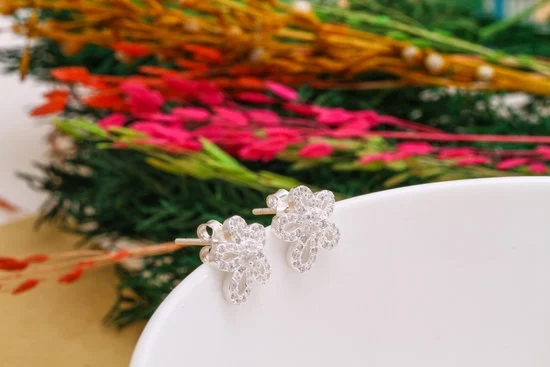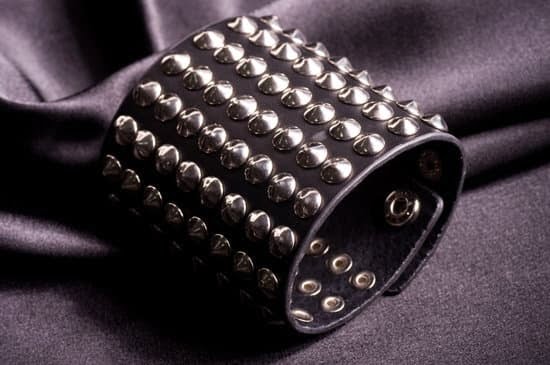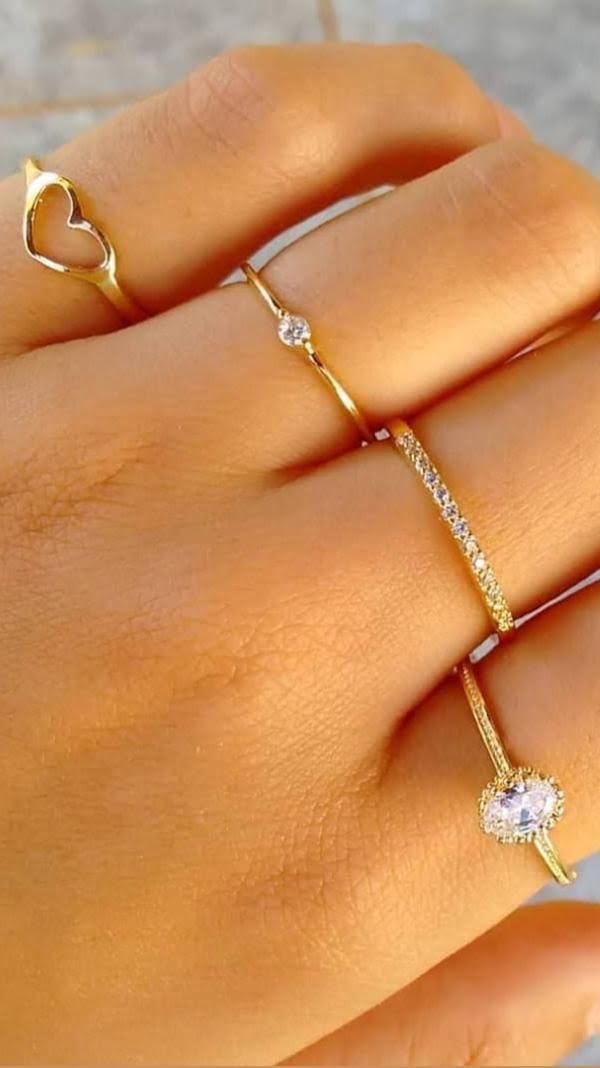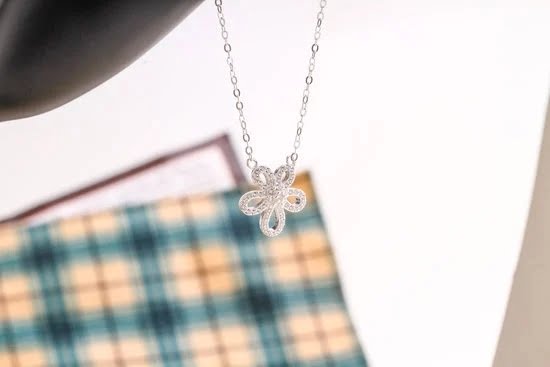Have you ever wondered, “Can I pawn gold plated jewelry?” If so, you’re not alone. Many people are curious about the possibility of using pawn shops to get cash for their gold plated items. In this article, we will explore the ins and outs of pawning gold plated jewelry, including what pawn shops are, how they work, and the factors that they consider when accepting gold plated pieces.
Pawn shops have been around for centuries, offering a unique way for individuals to secure short-term loans by using personal items as collateral. Understanding how these establishments operate is essential when considering pawning your gold plated jewelry. Additionally, knowing the key differences between gold plated and solid gold jewelry can greatly impact your experience with a pawn shop, as well as the value you receive for your items.
In this section, we will dive deep into understanding pawn shops: What They Are and How They Work. By gaining insight into these institutions and discovering the intricate process of pawning gold plated jewelry, you can make informed decisions about utilizing this option for obtaining quick cash or short-term loans.
The Difference Between Gold Plated Jewelry and Solid Gold Jewelry
Gold plating is a popular technique used to create jewelry that resembles the appearance of solid gold, but at a fraction of the cost. Gold plated jewelry is made by applying a thin layer of gold onto the surface of another metal, such as copper or silver. On the other hand, solid gold jewelry is made entirely of gold and is much more valuable. The key difference between the two lies in their composition and value.
Gold plated jewelry can be an attractive option for those looking to accessorize without breaking the bank. While it may not have the same intrinsic value as solid gold jewelry, it can still hold sentimental value and be worth something to pawn shops and buyers.
When it comes to determining whether your jewelry is gold plated or solid gold, there are a few ways to differentiate between the two. Solid gold jewelry will often have markings indicating its purity, such as “14k” or “18k.” On the other hand, gold plated jewelry may have markings like “GP” or “HGE,” which stand for “gold plated” and “heavy gold electroplate,” respectively.
Another way to distinguish between the two types of jewelry is through visual inspection. Over time, gold plating can wear off with regular use, revealing the base metal underneath. Additionally, solid gold jewelry will maintain its color and luster over time, while gold plated pieces may show signs of discoloration or tarnishing.
| Gold Jewelry Type | Distinguishing Characteristics |
|---|---|
| Solid Gold | Markings indicating purity (e.g. “14k” or “18k”) Visual inspection for color and luster |
| Gold Plated | Markings such as “GP” or “HGE” Wear and tear over time revealing base metal Tarnishing or discoloration |
Factors That Pawn Shops Consider When Accepting Gold Plated Jewelry
Gold plated jewelry can be an attractive option for those looking to accessorize without breaking the bank. When it comes to pawning gold plated jewelry, there are several factors that pawn shops consider before accepting these items. It’s important to understand what these factors are if you’re thinking about pawning your gold plated jewelry for some quick cash.
- Gold Content: While gold plated jewelry contains a layer of gold on its surface, the actual gold content is minimal compared to solid gold jewelry. Pawn shops will assess the thickness of the gold plating and the karat value to determine its worth.
- Condition: The condition of the gold plated jewelry is also a crucial factor. Tarnished or damaged pieces may not be accepted by pawn shops, as they can be difficult to resell.
- Market Demand: Pawn shops consider market demand when accepting gold plated jewelry. If there’s a high demand for certain styles or designs, it could increase the chances of acceptance.
Understanding these factors can help you gauge whether your gold plated jewelry is likely to be accepted by a pawn shop. It’s essential to manage your expectations and be realistic about the potential value of your items.
When considering whether you can pawn gold plated jewelry, keep in mind that pawn shops primarily look for items with resale value. By understanding their criteria for acceptance, you can better prepare your gold plated jewelry for evaluation and potentially get the best value for it.
The Process of Pawning Gold Plated Jewelry
When it comes to pawning gold plated jewelry, the process is fairly straightforward. Pawn shops are always on the lookout for valuable items that they can buy or loan money against, and gold plated jewelry is no exception. Here’s a breakdown of the typical process for pawning your gold plated jewelry.
Assessment and Evaluation
The first step in pawning your gold plated jewelry is to take it to a reputable pawn shop for assessment and evaluation. A pawnbroker will examine the item to determine its authenticity, quality, and market value. They will also consider factors such as the brand, condition, and current demand for similar pieces in order to make an offer.
Negotiation
Once the assessment is complete, the pawnbroker will make you an offer based on their evaluation of your gold plated jewelry. It’s important to remember that this offer is negotiable, so don’t be afraid to haggle for a better price if you feel that the initial offer doesn’t reflect the true value of your item.
Acceptance or Decline
If you are satisfied with the offer made by the pawnbroker, you can choose to accept it and leave with cash in hand. However, if you decide not to accept the offer, you have the option of leaving your gold plated jewelry with the pawn shop as collateral for a loan instead. This allows you to borrow money using your jewelry as security without having to part with it permanently.
Overall, pawning gold plated jewelry can be a convenient way to access quick cash when needed. As long as you understand the process and know how to navigate it effectively, you can confidently turn your gold plated items into cash or a short-term loan at a reputable pawn shop.
Tips for Getting the Best Value for Your Gold Plated Jewelry
When pawning gold plated jewelry, there are a few tips you can follow to ensure that you get the best value. Here are some things to keep in mind:
1. Research the Current Market Value: Before pawning your gold plated jewelry, take some time to research the current market value of gold. This will give you an idea of what your jewelry might be worth and can help you negotiate for a better price at the pawn shop.
2. Clean and Maintain Your Jewelry: Presenting clean and well-maintained jewelry can increase its perceived value. Take the time to clean your gold plated pieces before taking them to the pawn shop. This simple step can make a difference in the offer you receive.
3. Negotiate with Multiple Pawn Shops: Don’t settle for the first offer you receive. Visit multiple pawn shops in your area and compare their offers. Some shops may be more willing to offer a higher price for your gold plated jewelry, so it’s worth shopping around.
Remember that while these tips can help you get the best value for your gold plated jewelry, it’s important to be realistic about the value of these items. Gold plated jewelry typically has a lower intrinsic value than solid gold jewelry, so you may not receive as much money as you would for genuine gold pieces.
Overall, with careful research and a strategic approach, pawning gold plated jewelry can i pawn gold plated jewelry result in a fair deal for both parties involved.
Common Misconceptions About Pawning Gold Plated Jewelry
Many people have misconceptions about pawning gold plated jewelry, often assuming that it is not worth much or cannot be pawned at all. However, contrary to popular belief, gold plated jewelry can indeed be pawned for a reasonable amount of money. The key is to understand the value of the item and find a reputable pawn shop that is willing to accept it.
One common misconception is that gold plated jewelry has no value. While it may not have the same value as solid gold jewelry, gold plated items still contain a layer of precious metal that can be valuable. Pawn shops are often willing to accept gold plated jewelry, especially if it is in good condition and made by a reputable brand.
Another misconception is that pawn shops will not accept gold plated jewelry. In reality, many pawn shops are open to accepting a wide range of items, including gold plated pieces. The decision to accept an item ultimately depends on the individual pawnbroker and their assessment of the item’s value.
Additionally, some people believe that they will not receive a fair amount of money for pawning their gold plated jewelry. While it is true that the value of gold plated items may be less than solid gold, pawning can still provide a reasonable amount of cash in exchange for these items.
It’s important for individuals to do their research and seek out multiple offers from different pawn shops in order to get the best value for their gold plated jewelry.
Advantages and Disadvantages of Pawning Gold Plated Jewelry
When it comes to pawning gold plated jewelry, there are both advantages and disadvantages to consider. Understanding these can help you make an informed decision about whether or not pawning your gold plated jewelry is the right choice for you.
Advantages
Can Provide Quick Cash
when you need it. Unlike selling your items outright, pawning allows you to receive a loan based on the value of your jewelry, with the option to reclaim it once the loan is repaid. This can be especially helpful in emergency situations where you need immediate funds.
Pawn Shops Typically Don’t Conduct Credit Checks
, so your credit score won’t impact your ability to pawn your gold plated jewelry. This makes it a viable option for individuals with poor credit who may have difficulty obtaining a traditional loan from a bank or other financial institution.
Disadvantages
On the downside, one of the main disadvantages of pawning gold plated jewelry is that you may not receive as much money as you would if the jewelry were solid gold. Pawn shops will generally offer lower loan amounts for gold plated items due to their lower intrinsic value compared to solid gold.
Additionally, there’s always the risk of losing your jewelry if you’re unable to repay the loan. If you default on the loan, the pawn shop has the right to keep and potentially sell your jewelry in order to recoup their losses. This means that pawning should be approached with caution and only considered when absolutely necessary.
What to Look for in a Reputable Pawn Shop for Pawning Gold Plated Jewelry
When looking for a reputable pawn shop to pawn your gold plated jewelry, there are several factors to consider to ensure that you get the best value for your items. One of the most important things to look for is the reputation of the pawn shop.
Research online reviews and ask for recommendations from friends or family members who have experience with pawning jewelry. An established and trustworthy pawn shop will have positive feedback and a history of fair dealings with their customers.
In addition to reputation, it’s essential to find a pawn shop that specializes in jewelry and has experience in assessing the value of gold plated items. Staff knowledge and expertise can make a significant difference in ensuring that you receive a fair offer for your jewelry. Look for a pawn shop with certified appraisers who understand the intricacies of different types of jewelry, including gold plated pieces.
Furthermore, transparency in the pawning process is crucial when choosing a pawn shop for your gold plated jewelry. A reputable establishment will be upfront about their fees, interest rates, and terms of the loan. They should provide you with clear information about how they determine the value of your jewelry and be willing to answer any questions you may have. This transparency will help you feel confident in your decision to pawn your gold plated items at that particular shop.
The Future of Gold Plated Jewelry and Pawn Shops
In conclusion, while gold plated jewelry can be pawned at some pawn shops, it is important to understand the factors that will influence whether or not a pawn shop will accept this type of jewelry. The future of gold plated jewelry and pawn shops seems to be evolving as there is an increasing demand for more affordable and environmentally friendly alternatives to solid gold jewelry.
As technology advances, the quality and durability of gold plated jewelry may improve, making it a more attractive option for both consumers and pawn shops. Additionally, pawn shops may continue to adapt their policies and procedures to accommodate the pawning of gold plated jewelry as the market for these items grows.
Whether you are considering pawning your gold plated jewelry or looking to purchase it from a pawn shop, it is important to stay informed about current market trends and the potential value of these items. Ultimately, the future of gold plated jewelry and pawn shops holds promise for those involved in the industry, offering new opportunities for both buyers and sellers.
Frequently Asked Questions
What Is Gold Plated Jewelry Worth?
Gold plated jewelry is worth significantly less than solid gold jewelry. The value of gold plated jewelry is based on the thin layer of gold that has been electroplated onto a base metal. The amount of actual gold in the piece is minimal, so its worth is relatively low compared to solid gold.
Does Anyone Buy Plated Gold?
Yes, there are buyers who purchase plated gold jewelry. However, since the value of plated gold is much lower than solid gold, sellers should expect to receive substantially less money for their items. Buyers may purchase plated gold for its aesthetic value or for its potential resale as fashion jewelry.
Can You Scrap Gold Plated Jewelry?
It is possible to scrap gold plated jewelry, although it may not yield a significant return due to the small amount of actual gold present in the piece. When scrapping such items, it’s important to consider the cost and effort involved in extracting and recovering the tiny amounts of gold from the base metal.
For some individuals, scrapping plated gold jewelry may not be financially worthwhile.

Welcome to my jewelry blog! My name is Sarah and I am the owner of this blog.
I love making jewelry and sharing my creations with others.
So whether you’re someone who loves wearing jewelry yourself or simply enjoys learning about it, be sure to check out my blog for insightful posts on everything related to this exciting topic!





